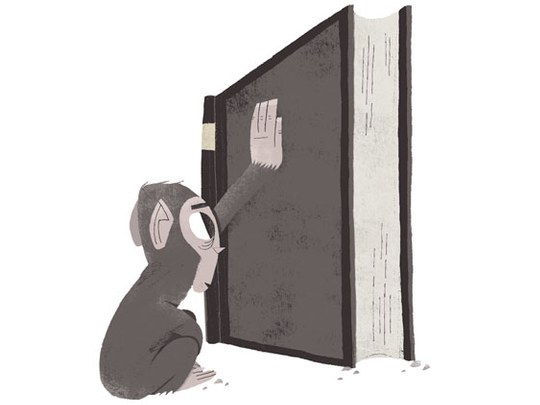
Zoo Time
By Howard Jacobson,
Bloomsbury Publishing,
400 pages, £7.99
Howard Jacobson started writing his new novel, a bitter satire on the demise of literary culture in the 21st century, before his previous one, “The Finkler Question”, received the 2010 Man Booker prize.
You would think such conspicuous success might have softened his attitude to the reading public, or at least given him pause — it is surely a bit awkward for an author whose work has been mentioned on the “10 O’Clock News” to rage about a culture “which held that a novel didn’t have to be well-written to be a masterpiece, indeed was more likely to be a masterpiece for being ill-written” — but it seems that his years of perceived neglect can’t be forgotten so easily.
“Zoo Time” is a 400-page tantrum directed at reading groups, Amazon reviews, three-for-two offers, Kindle, Richard and Judy, graphic novels, vampire novels, Scandinavian crime novels, declining advances, declining standards of grammar, declining interest in language and psychology, and much else besides.
Guy Ableman, the novel’s hero, is (like his creator) a middle-aged Jewish author of comedies from the north of England. He is involved in an extravagant midlife crisis, largely caused by his dwindling sales.
To begin with, it is all good, dirty fun. There are some decent jokes and a couple of well-made set pieces. Jacobson has a thundering oratorical voice and a mad energy that at times recalls the Philip Roth of “Sabbath’s Theater”. But pretty soon his hobbyhorse outrides his interest in storytelling, and the narrative becomes cluttered with explicit statements on the plight of serious writers in the marketplace: “Novels are history”; “No one had readers”.
Since “Zoo Time” deals with character, setting and plot in an entirely cursory way, you can only really engage with it as a piece of pure rhetoric — and yet its complaints are either unfocused or plain unconvincing. At its heart is nostalgia for “the idea of the book as a prestigious object, source of wisdom, and impious disturbance”. But the idea that a book might be both “impious” and “prestigious” is relatively new, and has only ever held sway within a narrow stratum of society. It is unclear quite when the golden age of reading that Ableman pines for is meant to have occurred, but judging from his frequent allusions to Joseph Conrad, Henry James, James Joyce and Henry Miller, he would situate it at least partially during the modernist period.
Those were certainly great years for literature, but were they really so different in terms of literature’s reception? Conrad’s “Nostromo” and James’s “The Golden Bowl” were both published in 1904, and it is true that they found contemporary readers, but Marie Corelli published two schlock bestsellers the same year, and these were incomparably more popular. Joyce’s “Ulysses” and Miller’s “Tropic of Cancer”, meanwhile, far from securing for their authors the kind of universal esteem denied to Jacobson and his contemporaries, were banned for several years after they were written.
So much for the good old days. The same goes for Ableman’s horror of recent technological innovations such as ebooks and Twitter. In the past hundred years, the advent of mass-market paperbacks, radio, film and television have all been viewed as dooming the novel. For as long as literary culture has existed, there have been warnings of its imminent demise. It is a deeply reactionary attitude. Another predictable source of outrage is the diminished revenue of the publishing industry. (Ableman’s editor is pitied because “he couldn’t any longer afford oysters”.)
It is true that advances are shrinking drastically at the moment; it is true that writers earn considerably less than pop stars or film directors, and that literary writers earn considerably less than thriller writers. Well, so what? I have nothing against authors earning lots of money — I wish they earned much more — but that isn’t a cogent reason for saying that they should earn any more, and “Zoo Time” fails to provide a better one. Just because Howard Jacobson cares more about Henry James than EL James, he takes it as self-evidently depressing that most people don’t feel the same. As a basis for satire, that is a non-starter.
–Guardian News & Media Ltd


